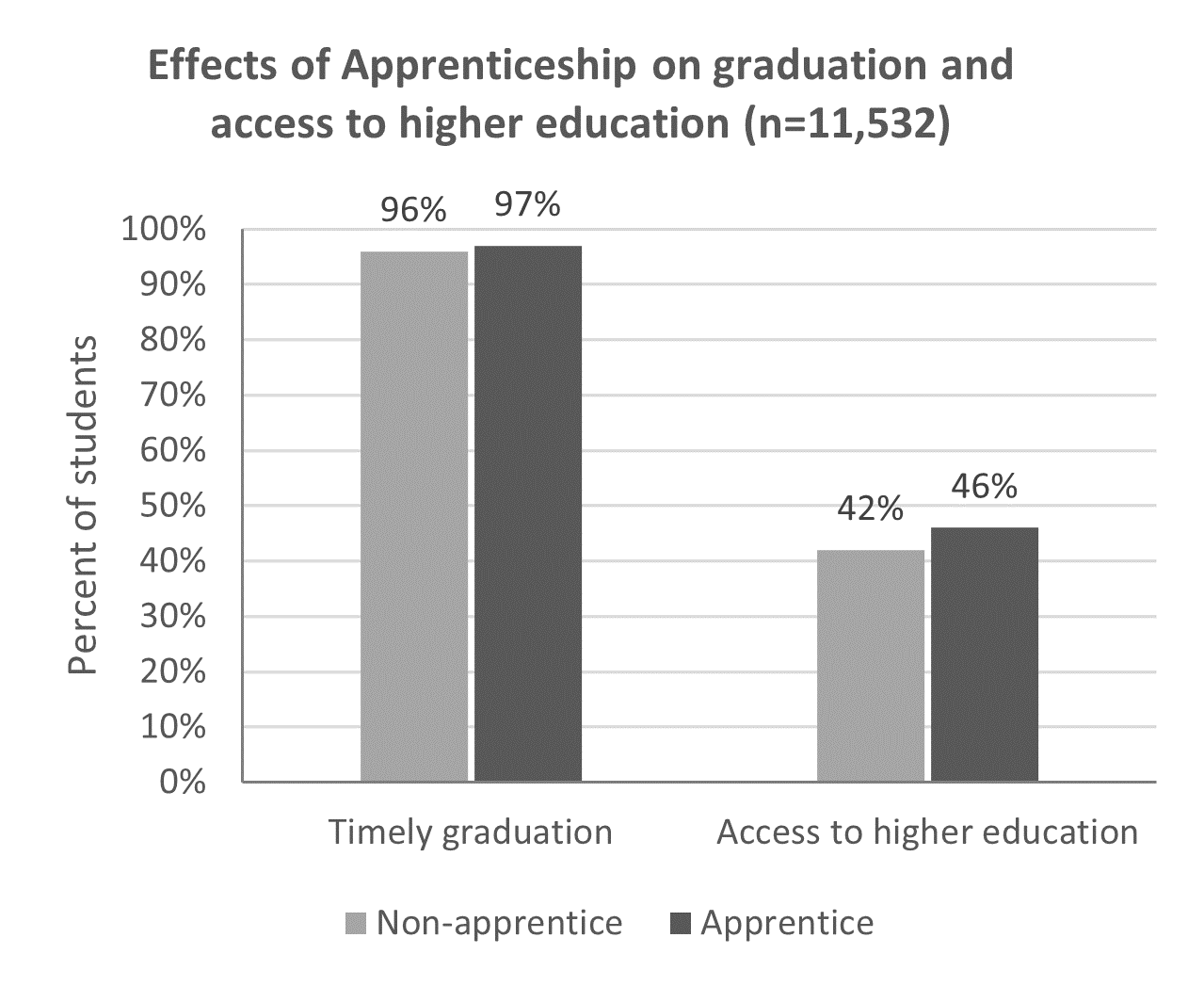Effects of apprenticeship on the short-term educational outcomes of vocational high-school students
José de Amesti & Susana Claro
Apprenticeship increase employment opportunities, but what about academic outcomes?
Apprenticeship-based high schools increase employment outcomes compared to school-based-only vocational education: countries that implement apprenticeship have eased the school-to-work transition and reduced youth unemployment. Despite these promising benefits of apprenticeship, there is almost no evidence of its impact on students’ educational outcomes. In fact, some worry that spending less time at school could motivate students to leave the academic path to join the workplace instead, causing apprentices to achieve lower educational attainment.
In this study we examined the case of Chile, a country with a strong vocational tier (38% of 12th grade students), and found that apprenticeship’s advantages do not occur at the expense of academic performance. Compared to the school-based vocational model, being in workplace-based vocational training has a positive effect on attendance, grades, graduation, and access to higher education.
What is apprenticeship-based vocational education?
Vocational education can be taught under different models. Generally speaking, there are two main types: the “traditional” approach, which provides full-time classroom-based vocational education; and the “apprenticeship” approach, which combines part-time classes at school with employer-provided on-the-job training.
The apprenticeship model is based on the theory that transferring training from schools to workplaces will increase students’ access to current knowledge and technology, decreasing the risk of teaching an obsolete curriculum in a quickly evolving economy. In addition, labor environments can provide interaction with the culture of work, helping students develop skills that might be difficult to practice at school.
Apprenticeship is appealing because it aligns education skills with employment demands, thereby solving concerns about outdated curricula and skill mismatches. Moreover, based on output benefits and input costs, apprenticeships generally involve similar government investment compared with school-based vocational education, yet they yield better educational (and labor market) outcomes.
How did we do this study?
We conducted an analysis using administrative data with a rich set of information on students’ socioeconomic characteristics, previous academic performance, socioemotional reports, and whether they attended apprenticeship-based vocational education or not. With this information we identified and compared two groups of students with very similar initial observed characteristics, but who attended different types of vocational education. The analysis is based on all Chilean vocational students who were in 12th grade during 2016 and who had no missing values (43,245 students, representing 57% of all vocational students). Assuming that the control group is effectively comparable to the treatment group (that is, there are no hidden discrepancies beyond the observed characteristics), we can attribute differences in academic performance between the two groups to the apprenticeship approach to vocational education.
Full Article Citation:
de Amesti, J., Claro, S. (2021). Effects of apprenticeship on the short-term educational outcomes of vocational high-school students. Journal of Research on Educational Effectiveness. DOI: https://doi.org/10.1080/19345747.2021.1917026.
